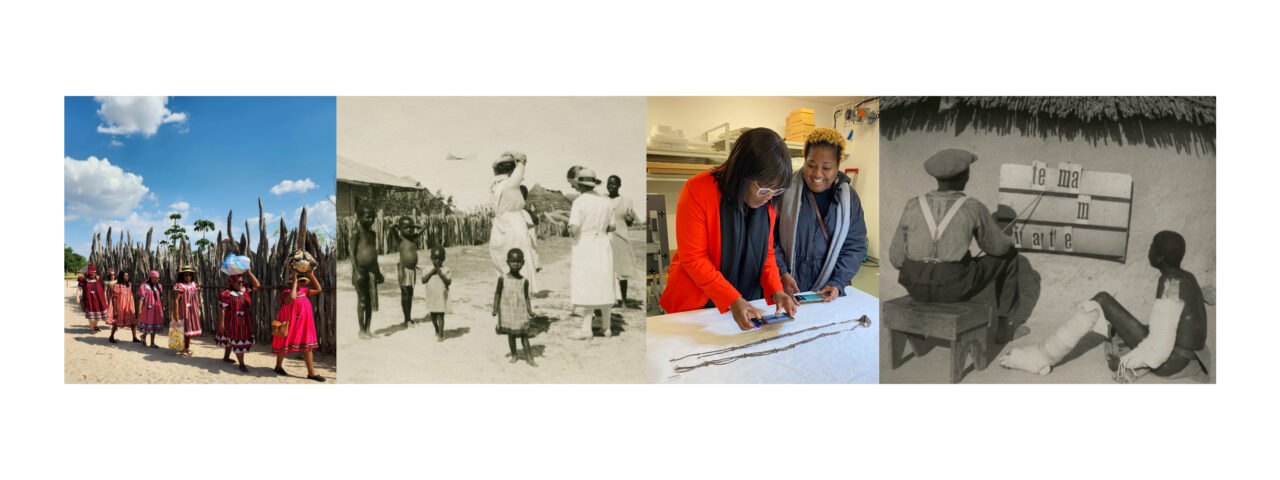Project
Decolonizing History-Writing: Transcultural Production, Mobilization and Transformations of Knowledge in Finnish-Namibian Relations 1870–1990 (FinNamKnow)
The Finnish missionaries’ work set in motion complex epistemological processes as Finns actively participated in advancing the Western informal empires by seeking to transform the Aawambos’/Namibians’ ways of being in the world. Finns introduced Western modes of education, medicine, material culture and social practices, particularly Evangelical Lutheran faith and literary languages. Simultaneously, knowledge of Namibia and Africa amongst the Finnish people grew gradually over the course of several decades. These transformations and new knowledge/s subsequently influenced the formation of both Finnish and Namibian conceptions of the world and of each other.
Yet, due to the imbalances in power positions throughout much of the common history of the two nations, the new knowledge was mostly based on the accounts and experiences of the Finns in Owambo, while Namibian voices and agency were often subsumed by Finnish voices and narratives. Whilst the asymmetrical power relations between Europeans and Africans used to work to hide the intellectual labour of Africans as co-creators of knowledge, reading historical sources against the grain can result in making African agency in its different forms more visible. Hence, collaboration between Finnish and Namibian scholars is crucial in approaching the epistemological dynamics in Finnish-Namibian relations and to further the aim of decolonizing knowledge.
Our project emphasizes the collaborative and interactive character of the creation of knowledge on colonial and decolonial Africa. It aims at decolonising the history of Finnish-Namibian knowledge production and restoring and inserting Namibian voices and agency in the shared knowledge production process.
The project has two main objectives:
- To renew current understanding of the history of transcultural knowledge formation of Namibia regarding material culture, children’s culture as well as the living cultural memory of Finnish-Namibian interactions.
- To investigate and develop forms of collaboration to decolonise the practices of Finnish-Namibian history writing. We aim to dismantle formations of colonial knowledge through collaboration between Finnish and Namibian scholars.
The research project focuses on three main themes:
Owambo material culture on display examines artefacts as mobilizers of knowledge. It focuses on Owambo objects collected and photographed by mission workers, often in collaboration with local people, and brought to Finland, and the ways in which they have been and can be used to inform about the Owambo cultural heritage.
Children’s culture focuses on the hitherto largely overlooked demographic of children as intended recipients of knowledge of Owambo. Under this theme, we examine the knowledge produced about Namibia and its people for Finnish children, as well as the use of this knowledge in educating them with regard to race, home, and religion. The project also examines the lives and experiences of Finnish missionaries’ foster children and transformations in the education of Namibian children brought about by the Finns and their schooling system.
Memory examines how the encounters and co-inhabitancy of the Finns and Namibians in Namibia are remembered and perceived. This is done by interviewing various groups of people and tapping into oral histories. Oral history interviews will be conducted among former Finnish missionaries and Namibian co-workers (e.g. in health care, educational institutes, the church). The interviews seek to cover not only the factual level of the historical events but also the level on which the interviewed interpret, make sense of and give meaning to their experiences.
Questions and inquiries regarding the project can be directed to the Project leader Professor Leila Koivunen, leikoi[at]utu.fi
